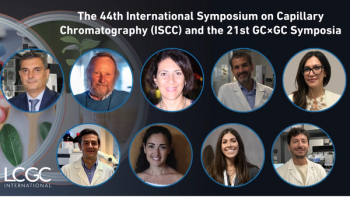
LCGC Europe eNews
- LCGC Europe eNews-11-18-2011
- Volume 0
- Issue 0
36th International Symposium on Capillary Chromatography
The 36th meeting of the International Symposium on Capillary Chromatography (ISCC) will take place at the Palazzo dei Congressi in Riva del Garda, Italy, from 27 May to 1 June 2012.
The 36th meeting of the International Symposium on Capillary Chromatography (ISCC) will take place at the Palazzo dei Congressi in Riva del Garda, Italy, from 27 May to 1 June 2012. The four-day event will feature recent findings from leading academic and industrial experts in the form of lectures and posters. The conference offers sessions on capillary gas chromatography, microcolumn liquid chromatography, electromigration methods and microfabricated analytical systems. These are expected to cover lab-on-a-chip, column technology, coupled and multidimensional techniques, comprehensive techniques, hyphenated techniques, sampling and sample preparation and trace analysis and automation.
Application sessions include environmental applications, energy/petrochemical/industrial applications, biomedical/pharmaceutical applications and the analysis of natural products, food, flavours and fragrances. Workshop seminars of instrument manufacturers and an extensive exhibition of instrumentation, accessories and supplies will run in parallel to the scientific programme.
At the meeting, the 2012 Marcel Golay Award will be presented in recognition of outstanding contributions in the field of separation science. Outstanding research work presented as oral or poster contributions by scientists 35 years and younger will be awarded the Leslie Ettre Award for research on capillary gas chromatography applied to environmental or food analyses.
The well-known "Riva Social Programme", which consists of a welcome reception, cocktail party, classical concert, cheese and wine evening, disco night and farewell cocktail, will also take place.
For more information, please visit
Articles in this issue
about 14 years ago
Technology Forum: Preparative Chromatographyabout 14 years ago
HTC-12 and HTSP-2Newsletter
Join the global community of analytical scientists who trust LCGC for insights on the latest techniques, trends, and expert solutions in chromatography.




